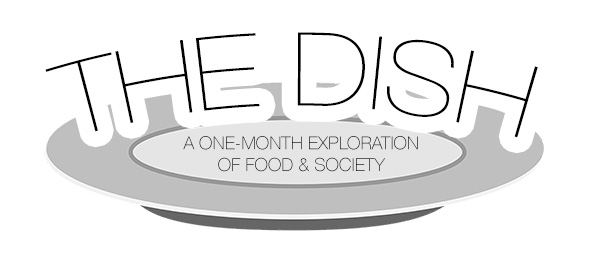If you’ve been keeping up with The North Wind for the past few weeks, you may have noticed we are in the depths of a month-long experiment on food and the social issues related to eating.
In week one, we explored hunger and the benefits of pushing your body to the limit with long periods of fasting.
In week two, I gave up solid food for a few days as I test drove Soylent, the powdered food replacement of the future.
After that hell, any other diet would have been preferable, so I went vegan.
I grew up in a meat-eating family, which isn’t really anything unique in our society of 319 million. As a whole, we eat a lot of meat in this country.
While the number has dropped some in recent years due to rising food prices, the early 2000s saw individual Americans consuming roughly 200 pounds of meat annually, according to the USDA.
However, that number pales in comparison when you factor in a complete diet. All things included, the average American puts away 2,000 pounds of food per year.
How hard could it be to replace just 10 percent of my diet? It’s more complicated than that. In the vegan diet, you not only give up eating meat, but all animal products in general. Honey is produced by bees, so that’s off the table. Forget about dairy and eggs as well.
If you wear leather, you will need to choose an animal free alternative, and any cosmetics you use that are tested on animals or contain animal byproducts have to go.
As a rule, I try to keep my bathroom free of chemical-laden products in favor of more natural soaps, shampoo and toothpastes. By design, many of the items I already used on a daily basis were already considered vegan. I discovered that even my cologne was a vegan brand, but you have to watch out with those, as many fragrances contain animal extracts that would make you cringe. Castoreum, for instance, is made from the anal glands of beavers. Musk is often extracted from the glandular secretions of deer and other animals.
After two weeks without a bite of meat, I felt amazing. My skin was healthier, I had more energy throughout the day and my sleep improved at night.
I learned to appreciate many new complex flavors and my house didn’t stink of grease every time I cooked something. Even though I consider myself a pretty good cook, planning new meals was sometimes a challenge as most of my previous recipes were based upon some sort of meat.
A lot of vegan recipes call for more ingredients than I would usually buy, but were delicious most of the time, regardless of a missing ingredient or two.
One thing I did not like very much were the multitude of meat and cheese substitutes available in the grocery store. Texturally, they were pretty gross to me, and the majority were based on some variant of soy, which in the United States is almost exclusively GMO. Recent studies have also warned against overconsumption, as soy is naturally estrogenic and can potentially cause cancer, among other complications.
The vegan cheese I tried was not very good, either, and I decided early on I would do without most of the meat substitutes available, save for a few veggie burgers that passed muster.
If you’re interested in pursuing a vegan diet, it is absolutely critical you do your research. It is totally possible to get what your body needs without eating animal products, but smart meal planning is the only way to do it.
There are plenty of vegans being treated for heart disease because, let’s face it, everything tastes good when fried—even vegetables. Cutting out meat, it seems, isn’t all you need to do to improve your long-term health.
Also, you will want to avoid the majority of processed meat substitutes. A lot of them are high in sodium and other preservatives, and too much soy may have health consequences.
If you’re really craving a veggie burger, you can make them yourself from a few whole and natural ingredients and you won’t have to deal with the freezer-burned taste.
Alas, I’m not quite ready to give up animal products completely just yet, but I have already committed to removing them from most of my weekly diet.
There simply is no way I could go back to my old ways after feeling as good as I did without meat, and every effort to shift toward a plant-based diet helps promote a more food-sustainable future, not to mention a healthier one for those doing the eating.
























